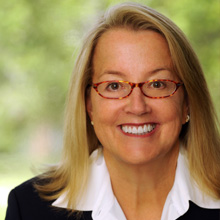On the Record: Through conversations about grief come change

April 29, 2016
This is not the first time I’ve written on this topic. And although it’s not one I’d planned on revisiting, especially so soon, I want to share some important words that speak to the heart of a devastating epidemic unfolding on a national scale. And that epidemic is depression, in its many forms.
Losses in our lives break us wide open. Anticipated losses give us time to make sense of what is happening and too, how we might respond to the impending emptiness.
When we have time to consider what the loss will mean, we have time to prepare our hearts and our minds. We have time to talk with loved ones and make meaning of the critical role they play in our lives and what they mean to us. Impending losses allow for both sadness and celebration to co-exist in ways that sudden loss does not. Sudden losses leave us momentarily fragile, with the final recognition that we are not in control.
A sudden loss reminds me of driving through a northeastern “white-out.” You aren’t sure how fast or slow to go; you cannot see what is in front of you or how close someone is following behind you. You do not know if you should turn right, turn left or come to a complete stop. Unexpected losses grab us and squeeze our hearts, leaving us momentarily without breath; we are often unsure if we should sit, stand or just fall down.
Grief has no timeline or path that is absolute. It leaves us lost and vulnerable, demands resiliency and courage. Ultimately, we emerge forever changed.
When we talk about the grieving process, what does this mean?
We are hurting as a community. And now, more than ever, it is so important to take care of yourself and your neighbors, friends and fellow students. Grief can bring a full range of emotions, from denial and emptiness to hope or redemption. What’s vital is that we stay in tune with our emotions. Let’s be aware of where we are in the grieving cycle and take care of ourselves and one another.
Make time to reflect and remember. Take time to care for yourself, eat properly and exercise. Most important, if you need support, ask for it. And if you witness others in need, do the same. Reaching out for help on behalf of a friend or neighbor is not a sign of weakness or betrayal; it’s insightful and brave. It’s when we’re most vulnerable that our actions create bold change.
If you take anything away from this, it should be to please ask for help when it is needed, whether that help is for yourself or for someone else. As we begin to heal the wounds that have been so widely exposed, let’s learn, adapt and evolve our actions in order to aid those struggling and prevent further loss.
Should you experience or observe any of the signals listed here, be concerned and take action:
- Panic attacks
- Feelings of depression or anxiety
- Marked changes in academic performance or behavior
- Relationship problems
- Alcohol or other drug abuse
- Noticeable changes in physical appearance
- Evidence of self-injury
Part of the healing process requires discussion and sharing. This is a courageous conversation to be had, not an easy one, but so very important in braving the darkness into the light.






